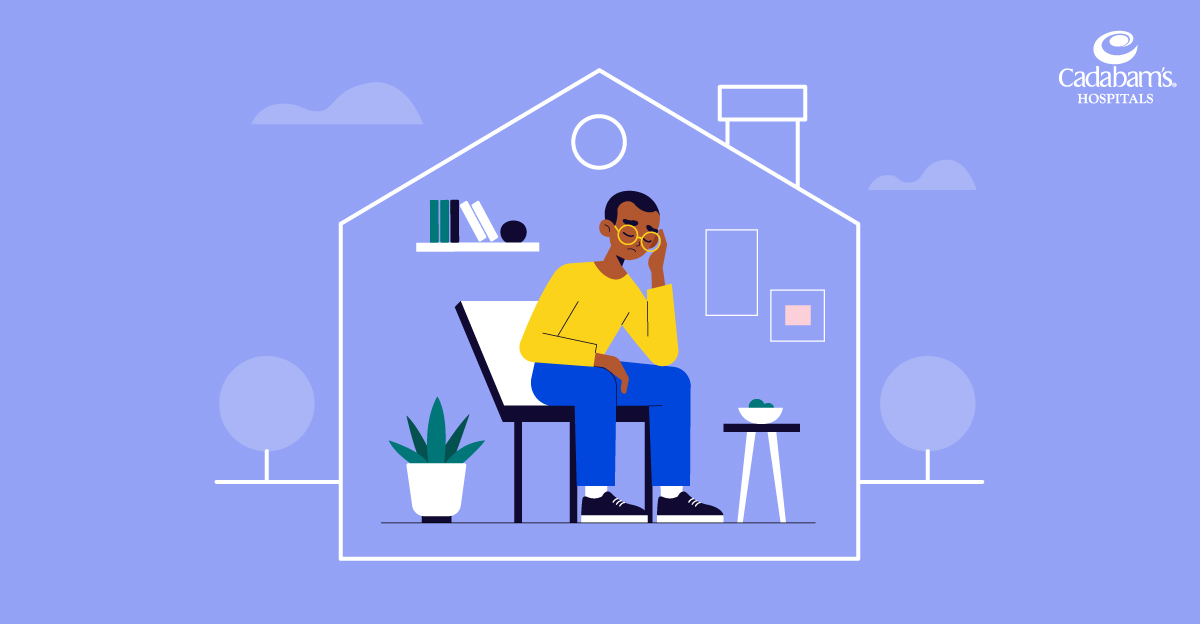Table of Content
10 Things to Do if You Are Feeling Lonely
Despite huge technological advances and increasing ways to “stay connected”, we have become increasingly disconnected from each other and feel more lonely. The current COVID pandemic situation has only exacerbated these feelings across the population. People feel more isolated and anxious. It is very important that we battle our lonesomeness, and learn to overcome our grief and loneliness.
Whatever the reason for your loneliness, know that more people are willing to support and nourish you than you think!
Am I Lonely?
Let’s answer a small bunch of questions before we begin this, shall we? Do you feel like no one knows you? Do you doubt whether you are important to anyone? Do you sometimes wonder whether you truly exist? Do you think you have no truly meaningful relationship?
If you answered “yes” to a few of them, it may be a sign of loneliness. Now this doesn't mean that there is something wrong with you. We all struggle with feelings of loneliness exacerbated by trauma, loss, and stress. Though it might feel permanent, this feeling doesn't last forever.
Why Do I Feel Lonely?
Despite having people around, you may still feel lonely. This feeling may be caused by depression, health conditions, grief, trauma, discrimination, moving to a new country, and relationship issues. Keeping these factors in mind, it is important to remember that the feeling of loneliness is common. However, this doesn't take away from the fact that it can be overwhelming.
10 Ways to Overcome Feelings of Loneliness
Loneliness can be caused by many reasons. It can diminish your self-esteem and make you more prone to depression. Here are a few tips on overcoming loneliness:
1. Reconnect with Life:
We have become more accustomed to technology and “virtual life” than connecting in real life. However, studies have shown that having face-to-face social interactions can improve our mood and reduce depression. It also reduces the feeling of loneliness. Hence, looking people in the eyes and talking to them, listening to conversations mindfully, and building stronger interpersonal relationships can reduce feelings of loneliness.
2. Cultivate a Hobby:
Restructure your leisure time to include your hobbies. Hobbies not only provide relaxation but also give meaning and joy to your life. However, try to have creative hobbies and not just consumptive hobbies.
Creative hobbies are leisure activities in which you create something, or improve a skill – learning a musical instrument, playing sports, gardening, etc. This gives you a sense of accomplishment and long-term joy. Consumptive hobbies are activities in which you are a passive consumer – shopping, watching movies & series, etc. While these hobbies lift your mood temporarily, it doesn’t provide you with long-term joy.
A good trick is to use your consumptive hobbies to create something. If you like watching movies, perhaps you could start a blog on movie reviews. If you like reading, you could join a book club and share your ideas and make friends!
Just ensure that your hobby is something you enjoy doing for fun and not something that causes you stress.
3. Make Friends and Talk to People:
We are social animals. Isolating ourselves can have adverse effects on our mental health. So, strengthen your old friendships and build new ones! Take time to give a call to your old friends and have a conversation. An easy way to make new friends is to join a class or club for a hobby of your interest.
In a club or class, you will meet other individuals with the same interest. Furthermore, chances are higher that they are also looking to make friends with similar people.
4. Challenge Negative Thoughts:
It is easier said than done. However, emotional awareness and self-discipline can help you control your negative thoughts. Wallowing in self-pity and constantly anxious about the future cause you to get caught up in your thoughts. When you feel very alone, call a friend, and strike up a conversation. If you feel isolated, go out and do some activities with your loved ones. Go for a walk around the park or play with your children. Take action to control and challenge your negative thoughts.
5. Volunteer:
Volunteering for a cause you believe in provides a sense of purpose and direction. It also serves the same purpose as taking a class or joining a club – meeting others, being part of a subgroup, and having new experiences. Additionally, it can help you be more grateful for what you already have in your life. Join a group that helps around the neighborhood if you can.
6. Adopt a Pet:
Adopting a furry friend as a pet is not only an act of kindness but can also help you feel less lonely. A pet can reduce your stress levels and provide companionship. Pets also give unconditional love which can reduce feelings of loneliness.
7. Practice Self-Care:
Above all, be kind to yourself. Having healthy & balanced meals, exercising regularly, and getting proper sleep are basic self-care practices that you need to incorporate into your daily life. These simple steps can impact both your physical and mental health significantly.
8. Be Active Online:
Rather than passively surfing the internet, taking the time to actively participate in forums, games, chatrooms, and more can be a great way to connect with others around the globe.
9. Create a Vision Board:
Having a visual representation of the things that make you feel less lonely and more connected to yourself and those around you can be a great reminder during moments of loneliness.
10. Pay Attention to the Things that Matter:
Identifying moments or experiences that have instilled a sense of belongingness in the past can be a great motive to revisit certain activities.
When Should I Seek Help?
Seeking the help of a therapist can provide you with methods and techniques to deal with loneliness. If you are dealing with grief and overwhelming loneliness, you can always talk to us.
How to Find a Therapist?
Finding a therapist who meets your requirements is a vital part of achieving successful healing. This involves examining their skills, specific areas of focus, years of practice, and other relevant factors. Alongside their qualifications, it is essential to evaluate the level of comfort and connection you have with your therapist. A positive rapport ensures a smoother path to coping. Therefore, it is completely normal to switch therapists until you discover the ideal match.
How Can Cadabams Help?
We have a firm belief at Cadabams that tackling mental health goes beyond mere symptom management. Our team of professionals, each with their areas of expertise, works together with you to create personalized treatment plans. If you need any assistance or have any questions, please don't hesitate to reach out to our round-the-clock helpline at +91 97414 76476.
FAQs
1. Why do I feel lonely every time?
Several reasons can make you feel lonely every time:
- Social anxiety
- Changes in life circumstances
- Low self-esteem
- Technology
- Social media
2. Is it OK to feel lonely every day?
It is common to experience feelings of loneliness. However, if such feelings are persistent, paying attention to your social and emotional well-being is important.
3. How do I accept being alone?
Accepting being alone can be an overwhelming journey. However, here are a couple of techniques that can help you navigate this-
- Practice self-compassion
- Focus on personal growth
- Build a support network
- Seek professional help
4. What are the 3 types of loneliness?
The three types of loneliness include social, emotional, and existential loneliness. Social loneliness entails the lack of social relationships or interactions. Emotional loneliness refers to the absence of empathy, understanding, intimacy, and closeness in relationships. Finally, existential loneliness is a deeper form of loneliness that stems from being disconnected from life.
5. What are the signs of loneliness?
Loneliness can manifest in different ways. Common signs include:
- Persistent feelings of sadness
- Social withdrawal
- Negative self-perception
- Difficulty maintaining relationships
6. Why do I cry when I'm on my own?
Crying when you are alone is a normal response and may be caused by several factors including lack of external support, stress, feeling of vulnerability, etc.
How Cadabam's Help you for Addiction?
- 410+ Professional Consultants
- 1,00,00+ Happy Faces
- 120+ Currently Seeking Treatments










